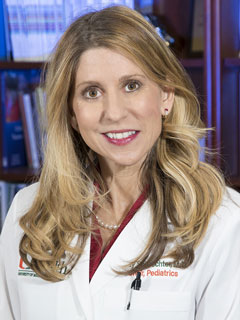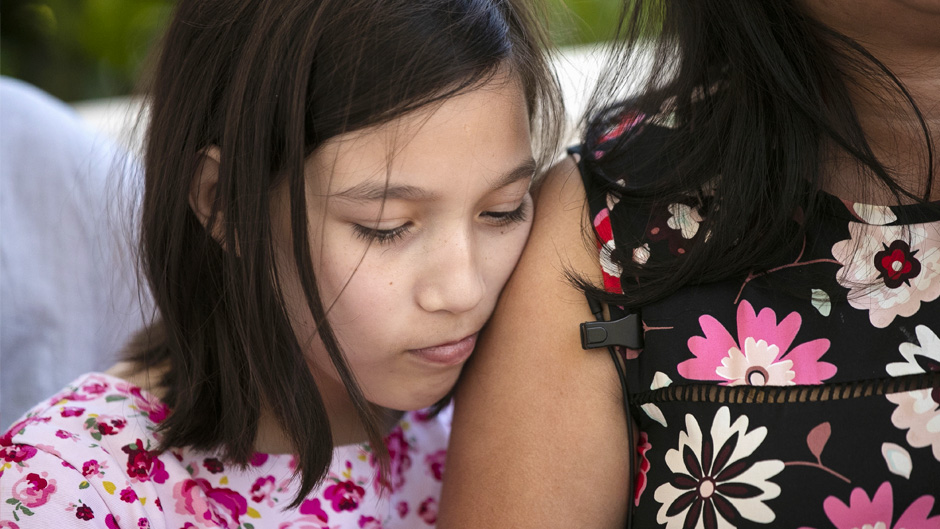In the ongoing battle against the novel coronavirus, health care providers have recently started considering a type of patient that was previously overlooked: children.
While medical experts previously thought that COVID-19 was confined primarily to adults, they are now learning it is not exclusive to those older than 21. In the past few weeks, as New York City is just starting to move past the peak of the outbreak, upwards of 130 children have reportedly been treated in the state’s hospitals with symptoms of what the U.S. Centers for Disease Control and Prevention is now calling multisystem inflammatory disease in children (or MIS-C), an illness that doctors believe springs from exposure to COVID-19 and causes an inflammation in at least two of the patient’s organ systems. Florida recently confirmed its first two cases.

Although Florida has not seen the number of children that New York has reported, cases are beginning to emerge in children in 18 other states and throughout Europe. So, pediatricians at the University of Miami are on high alert, said Dr. Judy Schaechter, chair of the Department of Pediatrics at the Miller School of Medicine and chief of service in child health at Jackson Health Systems. In her role, Schaechter teaches in the Miller School and sees patients at Jackson’s Holtz Children’s Hospital, as well as in an outpatient setting at the University’s Mailman Center for Child Development. She recently completed a two-week rotation in the COVID-19 unit at Holtz Children’s Hospital.
Schaechter shared what to look for in monitoring children for signs of this illness.
What do we know so far about multisystem inflammatory syndrome, this COVID-19 spinoff that is affecting children?
We are still learning about this condition, but what we do know is that it is associated with a positive coronavirus test (or past exposure to it), along with a persistent high fever (over 100.4 degrees for at least 24 hours) and the involvement of at least two organ systems in distress. That might be gastrointestinal disease (which could mean abdominal pain, diarrhea, or vomiting), cardiac problems, respiratory symptoms, skin findings like a rash or swelling, headaches, fatigue, or other issues.
In addition, this syndrome seems to be presenting three to four weeks after the local community peak of COVID-19 occurs. In Miami-Dade, our COVID-19 cases peaked in April, and then we hit a plateau. We have seen a sustained number of coronavirus cases for more than a month, so we are on alert to watch for MIS-C and we are prepared to care for any child with this condition.
While Miami physicians are looking out for it and are in touch with our colleagues throughout the country, we encourage parents to take care of their children as they always would with any illness concerns. If you think your child is sick, call the doctor and discuss your concerns and any symptoms.
Moving on to COVID-19 in children. News reports seem to indicate there is a larger range of symptoms among children than adults. Are the symptoms of COVID-19 in children different?
It is still true that most children seem to be resilient to the new coronavirus. A majority of those infected will be asymptomatic. Still, if a parent is concerned a child is sick with anything, it’s okay to call the pediatrician. Because what we’re learning is coronavirus may present in children in atypical ways, or at least in ways that are distinct from the signs in adults.
The pandemic is evolving in front of us, so there’s a lot we still don’t know. Some kids—including teens—may present very much like adults in terms of respiratory symptoms like shortness of breath and inflammatory markers. (These are indications in the blood that organs are struggling.) In general, everything you’ve heard of what happens to adults (dry cough, muscle aches, fever, and shortness of breath) can happen in kids; but so far, it is less often. The research out there tells us that children experience less fever and cough than adults, so the presentation of COVID-19 in kids may be milder. For example, among children who were hospitalized for COVID-19 in China, only 48 percent—less than half—had a fever. Some hospitalized kids also experience rapid heart rate or rapid breathing; some have the loss of taste and smell. But based on what we know now, the vast majority of children will be asymptomatic and don’t need any special treatment.
In the past few months, many parents have been afraid to take their children to the pediatrician’s office because they feel it may risk exposing their family to COVID-19. In this situation, what would you advise them to do?
If your child has a fever and looks sick, then you need to call and consult with a pediatrician. If they need to come in, get them that help and don’t delay.
We know how to protect the people around us—patients, families, and staff—in a health care setting. Pediatricians offices are using masks, practicing physical distancing, and separating the well-children from sick children in our offices. We do not have crowded waiting rooms, and we are disinfecting surfaces and using proper hand hygiene. I’m confident that it’s much better to get the care a child needs—either preventative care or care for a symptom by calling a physician and going into their office—rather than for a child to be staying at home without a physician involved when care is needed.
I also want to urge parents to get children their regular vaccines. We don’t want an outbreak from something preventable, such as measles or pertussis, because we are not vaccinating our kids. And we don’t want kids to have more complicated disease because we delayed their care.
As things begin reopening in Miami, do you think it’s safe to send children to day care facilities?
This is a family by family decision. Up to 20 percent of childcare centers have stayed open in Miami-Dade, including our on-campus facility. Let’s remember that the vast majority of children—if they have COVID-19—don’t get sick. Also, children do not seem to be the ones primarily transmitting the virus to others, and children over the age of two can wear masks. So, for people who need to go back to work and who want to see their children get the great social benefits from being in school, I wouldn’t fault them. But I also would not fault parents who want to keep their children at home and have a way to do so.
Coronavirus is going to be with us for a while, so it’ll be important to figure out how we live, work, and educate ourselves in this new normal. That means making it routine to wear a mask, practicing frequent hand hygiene, observing social distancing, and keeping away from others if you are having any symptoms—even if you think it may be nothing. We have to be sure our culture is also about protecting others. If your child is sick, keep him or her at home.
What would you tell parents who are anxiously watching the headlines about this syndrome?
The numbers are small, and the chance that this will happen in your family is not something to panic about. We have the resources to take care of children here [at UHealth]. So, if your child is sick, let us know. We will thoroughly assess your child and provide the care that is needed. Still, remember this is very rare.
It’s important to remember what hasn’t changed: Don’t worry about what you can’t control. On the other hand, if your child has a fever, isn’t eating, or otherwise seems ill, call your doctor—just as you would have before the pandemic.
Also, focus on what we can control. We can physically distance, use masks ourselves, and teach young children about the importance of wearing a mask for their protection and to protect others. We can all make sure we are washing our hands often and well.

